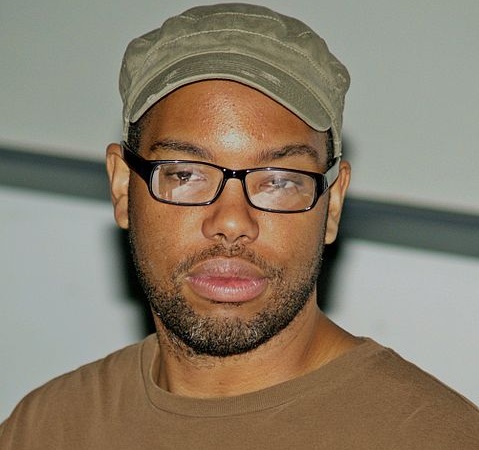The John D. and Catherine T. MacArthur Foundation announced the 24 winners of the MacArthur Fellows awards, known widely in the public as the “genius awards.” Each of the genius award winners will get $625,000 over five years to be used however they might wish. Cecilia Conrad, a vice president of the foundation and director of the fellows program, described the winners as creative in their fields “with the potential for more. We kind of want to catch them before they really make it.”
There is always a strong element of nonprofit or civil society leadership reflected in the array of genius grant winners. In this year’s list, three of the notable winners should be quite recognizable to NPQ readers: Juan Salgado, the president and CEO of the Instituto del Progreso Latino in Chicago, known for innovative workforce development programs; Ta-Nehisi Coates, a writer for the Atlantic and known for his articles and books on racial justice issues; and Gary Cohen, founder of Health Care Without Harm, addressing the toxic waste and other polluting agents caused by American hospitals.
For NPQ readers, a number of MacArthur genius winners have been or become prominent players in the nonprofit arena. A few of them include:
- Historian, literary critic, Harvard professor, and racial justice activist Henry Louis Gates (1981)
- Director of the Middle East studies at Johns Hopkins University’s School of Advanced International Studies, known for his enthusiasm for George W. Bush’s invasion of Iraq, the late Fouad Ajami (1982)
- Federal tax and economics expert, first director of the Congressional Budget Office, and appointed by President Obama to the Simpson-Bowles Commission on fiscal reform Alice Rivlin (1983)
- Industrial Areas Foundation (IAF) organizer Ernie Cortes and Ashoka founder Bill Drayton (1984)
- Founder of the Children’s Defense Fund Marion Wright Edelman (1985)
- Founder of the Overseas Development Council, the Worldwatch Institute, and the Earth Policy Institute Lester Brown (1986)
- Progressive educator and supporter of the “small schools” movement Deborah Meier (1987)
- Founder of the Hispanic Housing Development Corporation in Chicago Hipolito (Paul) Roldan, and founder and director of the Joint Center for Political and Economic Studies in Washington, Eddie N. Williams (1988)
- Champion of youth-led media and founder of Youth Communications Keith Hefner (1989)
- Founder of the National Center for Neighborhood Enterprise Bob Woodson and founder of the Tacolcy Economic Development Corporation focused on restoring Liberty City Otis Pitts (1990)
- Monsignor William Linder Jr., founder of the New Community Corporation in Newark (1991)
- President and executive director of the Southern Mutual Help Association in rural Louisiana Lorna Bourg (1992)
- Paul Farmer, who established the international health organization known for its post-earthquake work in Haiti, Partners in Health and Amory Lovins, the energy policy expert who headed the Rocky Mountain Institute (1993)
- Carolyn McKecuen, founder of the Take Our Daughters and Sons to Work Foundation (1994)
- Disaster relief specialist Frederick Cuny, who disappeared while on a mission to Chechnya in 1995 (1995)
- Bill Strickland, founder of the Manchester Bidwell Corporation that provides job training to youth and adults in the Pittsburgh area, Martin Eakes, a Ford Foundation trustee and founder of the Center for Community Self-Help, Dorothy Stoneman, founder of YouthBuild, and Bob Greenstein, founder of the Center for Budget and Policy Priorities (1996)
- Founder of the Native American Community Development Corporation and the Blackfeet National Bank—and namesake of the class action litigation that challenged the U.S. government on its management of Indian trust lands—the late Elouise Cobell (1997)
- Founding president of the Asian Pacific American Legal Center and former chair of the California Endowment board Stewart Kwoh, founder of the Center for Public Integrity Chuck Lewis, and urban critic Mike Davis (1998)
- Founder of the Freelancers Union Sara Horowitz (1999)
- Former policy director of the National Council of La Raza and currently director of President Obama’s Domestic Policy Council Cecilia Muñoz (2000)
- Executive Director of the New York-based NGO Human Rights in China, vice chairman of the steering committee of the World Movement for Democracy, and founder of the bilingual China Digital Times Xiao Qiang (2001)
- Former senior fellow at the New America Foundation and award-winning journalist writing about social welfare policy, Katherine Boo (2002)
- World Bank president Jim Yong Kim (2003)
- Katherine Gottlieb, Alaskan nonprofit health care provider (2004)
- Founder of Sustainable South Bronx Majora Carter (2005)
- Founder of the Institute for OneWorld Health Victoria Hale (2006)
- Esther Duflo, economist, co-founder of the Abdul Latif Jameel Poverty Action Lab (J-PAL), and professor of Poverty Alleviation and Development Economics at the Massachusetts Institute of Technology (2009)
- Emanuel Saez, economist at the University of California Berkeley, a research partner of Thomas Piketty on issues of economic inequality (2010)
- Maurice Lim Miller, founder of Asian Neighborhood Design, founder of the Family Independence Initiative, and appointed by President Obama to the Council for Community Solutions, and Laura Poitras, filmmaker of Edward Snowden’s NSA revelations and escape from the U.S. (2012)
- Ai-Jen Poo, executive director of the National Domestic Workers Alliance (2014)
By virtue of this list, it seems that the MacArthur Foundation has recognized nonprofit leaders who merit their fame. A couple have had some downturns in their work, notably Pitts, and there are some whose fame others would suggest is a bit overdone, but the overall list is one of nonprofit leaders who largely merit the recognition that they have received. To the extent that these leaders have stayed and continued their work in the nonprofit sector and for social change, the MacArthur Foundation’s genius awards may be said to have helped advance the nonprofit sector as a whole.—Rick Cohen







